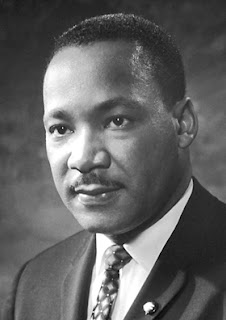It is sometimes the case that emotionally laden words and
high-sounding concepts use what can only be described as semantic
piggybacking. Their moral foundation
rests on another meaning of the same word in order to make a different, less
justified context more meaningful.
In regular usage, ‘legitimacy’ refers not just to
conformation to the law but to moral justification.
Oxforddictionaries.com defines ‘legitimacy’ as “a.
Conformity to the law or to rules. B. Ability to be defended with logic or
justification; validity.”
The definitions of this word can be numerous but run roughly
along the same lines. However, when the
same word is spoken in politics, it often simply refers to recognition of a
state or authority by outside forces.
The constituent theory of statehood holds that a state
cannot be legitimate unless acknowledged by an already recognised state. The problem is that it lacks the former
foundation of regular usage: moral justification.
Any ‘thug-archy’ can be recognised by UN member states,
however abusive, theocratic, undemocratic and even genocidal. Any violent (or even non-violent) opposition
to the recognised powers can be regarded as illegitimate regardless of whether
the opposition party or state is a democratic entity.
 |
| Idi Amin, a 'Legitimate' Dictator |
 |
| 'Illegitimate' captured Jewish Resistance in the Warsaw Ghetto |
Many examples of this are found within the Terrorism
Research Analysis Consortium (TRAC). Any
armed group is labelled a terrorist organisation regardless of the extent or
type of violence or whether or not they are the democratic force fighting a
tyrannical entity. The only criteria for
inclusion are that they are unrecognised or non-state entities.
If this is all that political legitimacy means, then it is
unimportant whether or not a state is legitimate. It is an unworthy concept. If these statements sound outrageous, then it
means that one has confused the distinctions between the two concepts.
Recognition is only necessary for diplomatic relations. It is not necessary to have this in order to
have a functioning government and state apparatus with benign intent.
Legitimacy is based within law. Justified laws must be grounded in morality.
Some good examples of these concepts are the following
states:
Artsakh, Abkhazia, Transnistria, and Taiwan. All of these states have de facto ownership
of the territories that they govern.
Taiwan also has de facto control of its territory. It is much better established than the other
states mentioned by is only officially recognised by a handful of states. This is due to the fact that both Taiwan and
the widely recognised Peoples Republic of China claim sovereignty over each
other’s territory. These territories
have informal relations with other countries and in the case of the first
three, only formal relations with each other.
However, each has its own functioning state apparatus with all the accoutrements
of statehood, such as a military, police force etc.
 |
| Artsakh Parliament building in Stepanakert |
Artsakh and Abkhazia are listed in the TRAC consortium as
terrorist organisations. They have not
committed any more crimes (in fact, far fewer) than many other states that are
recognised in the geographical vicinity.
Curiously enough, the Viet Cong aren’t listed as a terrorist
organisation in the consortium, despite the fact that their massacres of civilians
were deliberate, prolific and stated by themselves as calculated terrorism. They
were merely a state-sponsored insurgency in South Vietnam that worked in tandem
with the conventional North Vietnamese Army (NVA).
 |
| Viet Cong massacre at Dak Son |
This raises the question of how much criticism a party in conflict can avoid simply by winning. When one wins decisively enough, the world
has no choice but to deal with the victor, however reluctantly.
The United Nations, which is responsible for policy, should
bear in mind that the three most powerful countries ever to be a part of the
UN were formed by successful insurgencies.
These were the Soviet Union (Russian Civil War), China (Chinese Civil
War) and America in their war for independence from Britain.
Another problem with this vague concept of constituent
legitimacy is the extent of recognition.
How many states need to recognise another state for it to be considered
legitimate? Israel and Palestine are each
recognised by over a hundred different countries, yet only one government (that
of Israel) truly governs the area.
The recognition-based theory of statehood needs
to be thoroughly revised or discarded entirely.
Outside acknowledgement of a state means nothing if it is not fully recognised
by the population it governs. This fact has led to the far more tenable principle of ‘consent of the governed’.
“We should never forget that everything Adolf Hitler did in
Germany was “legal” and everything the Hungarian freedom fighters did in Hungary was “illegal”. It was “illegal” to aid and comfort a Jew in
Hitler’s Germany. Even so, I am sure
that, had I lived in Germany at the time, I would have aided and comforted my Jewish
brothers.”
Martin Luther King Jr.
 |
| Rev. Martin Luther King Jr. |

Comments
Post a Comment